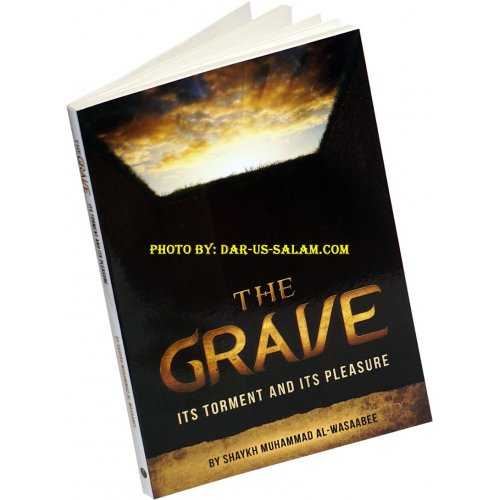



 Read the review
Read the review
| Subtitle | القبر: عذابه وسروره |
| Author | Shaykh Muhammad Al-Wasaabee |
| Translator | Ihsan Bin Gerald Gonsalves |
| Binding | Paperback |
| Pages | 149 |
| Size in Inches | 6x9x0.5 |
| Size in CM | 15x23x1.20 |
| Edition | 1st (May 2014) |
| Weight (lbs) | 0.55 |
This book covers all the issues regarding the grave, its trials, punishments and pleasures. The author provides proofs from the Quran, Sunnah & beliefs of Ahlus Sunnah wal Jama'ah regarding the torment and bliss of the grave, and how it differs from the belief of the misguided groups from amongst the people of innovation and desires.
The grave is the first stage that the slave proceeds to after the worldly life. In it, the people of Al-Barzakh Will find What they deserve of torment or bliss, depending on their state in the dunya, and then to Heaven or the Hell-fire, and therein will reside in the never-ending residence.
May Allah save us from His punishment and make us from among the righteous who increase in good deeds until they obtain His mercy. Ameen.
It is related that Abu Hurairah said: "We were walking with the Messenger of Allah (sallallahu alaihi wa sallam) when we passed two graves. Then he stood still and we stood with him. His color started to change and he rolled up his sleeves, so we said: 'What's the matter, oh Prophet of Allah?', he said: 'Don't you hear what I'm hearing?' We said: 'What is it, oh Prophet of Allah?' He said: 'These two men are being severely punished in their graves for a relatively minir sin." We said: 'For what are they punished, oh Prophet of Allah?' He said: 'One of them never used to clean urine from himself, and the other used to harm the people by his speech and walk amongst the people carrying tales.'
So he called for two palm stalks and he put one into each grave. We said: 'Will this benefit them oh Messenger of Allah?' He replied: 'Yes, it will lighten their punishment for as long as it remains moist.'" Reported by Abu Hatim (3/106) in "Al-Ihsan".
